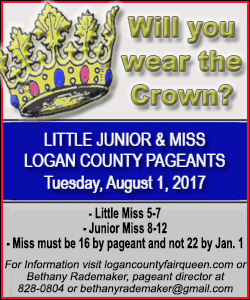|
U of I Research
News
Young leaders face internal conflicts
 Send a link to a friend
Send a link to a friend
[May 13, 2017]
What makes a good leader? Is it someone who
listens and puts the needs of the group before her own? Someone who
adapts her leadership style to new situations? Or are the best
leaders those that command, with unwavering resolve and a consistent
style? Not sure? Neither are young adult leaders, according to a
recent study from the University of Illinois.
|
|
 “What we found through interviewing undergraduate
students is that they consistently and unconsciously
contradicted themselves about the qualities of a good leader,”
says David Rosch, assistant professor in the Department of
Agricultural Leadership and Science Education at U of I. “What we found through interviewing undergraduate
students is that they consistently and unconsciously
contradicted themselves about the qualities of a good leader,”
says David Rosch, assistant professor in the Department of
Agricultural Leadership and Science Education at U of I.
Rosch and collaborator Daniel Collier interviewed a diverse
group of 23 U of I undergraduates that had both leadership
training and personal leadership experience.
“We asked them a ton of different questions about what they
thought about leadership,” Rosch explains. “For example, ‘What
do you think leadership is? What do you think good leaders do?
What do you think bad leaders do that’s different from what good
leaders do?’ Theoretical questions. Then we asked them practical
questions about their own behaviors, how they do leadership well
in their own heads.”

There were contradictions in almost every student’s interview.
When asked about the qualities of an ideal leader, most students
talked about leaders as servants to the group, sacrificing their
own priorities for the greater good. But, just minutes later,
many students suggested those types of leaders were weak or
ineffective. They also spoke negatively about commander-style
leaders, but later made positive remarks about them.
[to top of second column] |

“They clearly believed their first definition of good
leadership, and they clearly believed the opposite at the same
time,” Rosch notes. “Young adults are in a phase where they are
beginning to realize there are a lot of different ways to lead.
There are times to listen and there are times to say ‘Folks, I
think we need to do this.’ What we found was that undergrads
don’t yet understand when to do which.”
Our views on leadership come from our own experiences
with natural leaders in our lives – parents, teachers, coaches, and
others. Rosch says we tend to learn good lessons from those
interactions. The contradictions often come from what Rosch calls
“Hollywood lessons of leadership,” those dramatic stories in which a
dynamic, powerful leader makes a strong decision to save the group.
Leadership training can help young adults make sense of these
conflicts. Rosch says training should include self-reflection
exercises for those moments of internal conflict, as well as an
emphasis on scenario recognition. “Leaders need to know how to read
situations so they can adapt their style and decisions accordingly,”
he notes.
[Lauren Quinn, Ph.D.
Communications and Marketing
University of Illinois
College of Agricultural, Consumer and Environmental Sciences]
 |